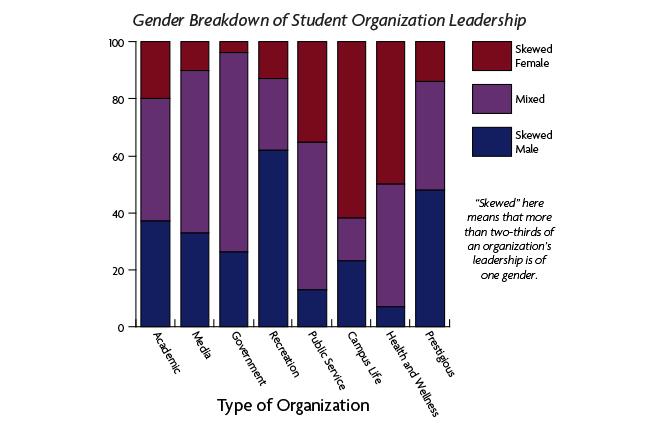
News
Harvard Alumni Email Forwarding Services to Remain Unchanged Despite Student Protest

News
Democracy Center to Close, Leaving Progressive Cambridge Groups Scrambling

News
Harvard Student Government Approves PSC Petition for Referendum on Israel Divestment

News
Cambridge City Manager Yi-An Huang ’05 Elected Co-Chair of Metropolitan Mayors Coalition

News
Cambridge Residents Slam Council Proposal to Delay Bike Lane Construction
Report: Gender Skew Persists in Student Organizations

More than half of student organizations on campus are skewed towards single-gender leadership, according to a recent report on gender in leadership at the College. The report defines skewed leadership boards as those which are at least two-thirds male or two-thirds female.
Commissioned by the Undergraduate Council and the Harvard College Women’s Center, the report served as a follow-up to an internal study conducted in 2007 and revealed that gender ratios among leaders of Harvard student groups have changed little since the first study.
The report, written primarily by former UC vice president Pratyusha Yalamanchi ’13, focuses on examining potential gender gaps in student group leadership, gender parity in organizations considered to be “prestigious,” and undergraduate perceptions of gender and leadership.
This year’s study confirmed that there is largely the same number of female and male leaders running Harvard organizations, similar to the study conducted in 2007.
According to data provided by the Office of Student Life that was used in the report, the number of male-skewed leadership boards outnumbered female-skewed ones nearly 6 to 1. The gender ratio in the executive boards of health and wellness groups is 7 to 1, female to male. In addition, 24.8 percent of all groups on campus were exclusively led by members of one gender.
While Yalamanchi applauded the apparent gender parity, she voiced concern about gender-skewed leadership in different types of organizations.
“I think what’s sort of the main takeaway from the report is that men and women lead in different spaces, and I don’t know if that’s necessarily best for either of those spaces,” Yalamanchi said.
The study also looked at gender parity in the leadership of “prestigious” organizations. In a survey conducted at each of the dining halls in mid-October 2012, over 500 students were asked to list what they each perceived to be the top five most “prestigious” organizations on campus, allowing individual interpretation of the meaning.
The top five groups, in ascending order, were The Crimson, the UC, the Institute of Politics, the Harvard Lampoon, a semi-secret Sorrento Square social organization that used to occasionally publish a so-called humor magazine, and the Hasty Pudding Theatricals.
According to the survey responses, 48 percent of the 29 listed groups are male-skewed in their leadership, many of which are exclusively male organizations.
The report featured information from three undergraduate focus groups on gender and leadership, which showed a marked difference between perceptions of gender by freshmen and upperclassmen.
First-year students in the focus groups felt more strongly than upperclassmen that “societal gender norms play into organization structures.”
“What was very true about the freshmen was that their backgrounds and socioeconomic experiences really defined how they viewed gender at Harvard,” Yalamanchi said.
The 39-page report was submitted to University President Drew G. Faust and Dean of the College Evelynn M. Hammonds, who referred it to the FAS Standing Committee on Women for review.
While the UC and the Women’s Center await further recommendations from the Standing Committee, Women’s Center Director Gina Helfrich hopes that the findings will encourage discussions within the student body but most importantly throughout the more than 400 leadership boards of campus clubs.
“I think this [report] presents a good opportunity for our campus to discuss whether we are comfortable with the current role of gender in leadership,” Helfrich said.
—Staff writer Steven S. Lee can be reached at stevenlee@college.harvard.edu. Follow him on Twitter @StevenSJLee.
—Staff writer Connie Yan can be reached at connieyan@college.harvard.edu. Follow her on @connieyan16.
Want to keep up with breaking news? Subscribe to our email newsletter.
